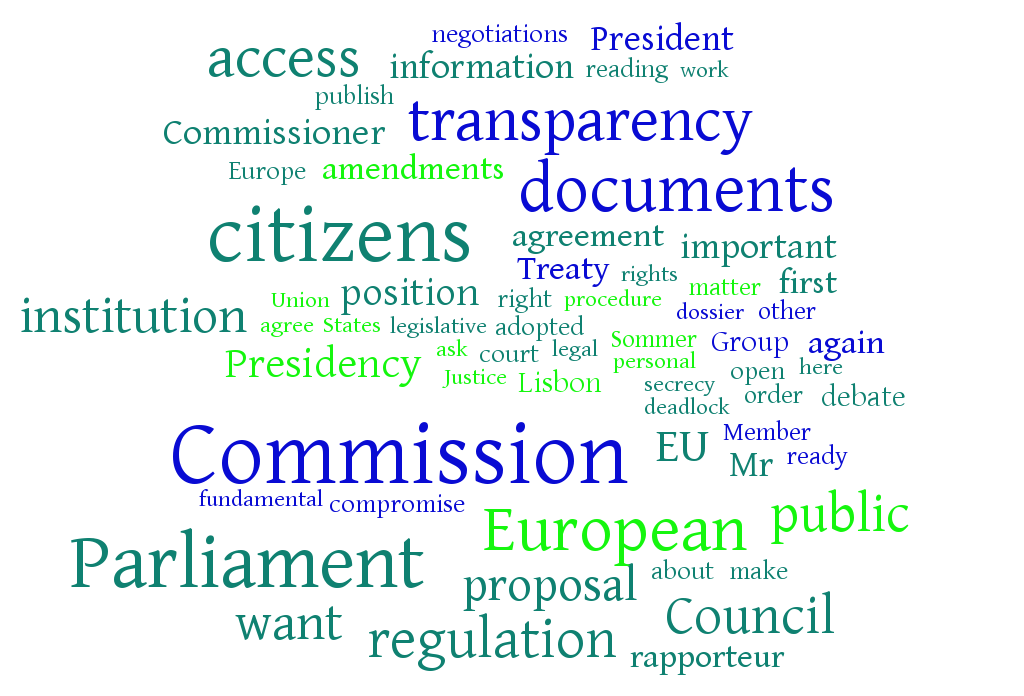Brussels, 11 July 2013 – The European Parliament has succeeded in getting the EU’s access to documents Regulation 1049/2001 back on the agenda of the Council’s working party on information, following a public debate and Motion for a Resolution which calls on the European Commission and the Member States to come back to the negotiating table. The EU’s transparency negotiations have been stalled since the Danish Presidency failed to broker an agreement in the Council in June 2012.
During the debate held in the Parliament on 21 May, which the EU transparency Commissioner Mr Maroš Šefčovič did not attend, the vast majority of MEPs argued in support of the rapporteur Michael Cashman. They emphasised the need to extend the right of citizens to access EU documents and information, particularly given that the Lisbon Treaty enshrined access to EU documents as a fundamental human right in 2009, a year after the Commission’s proposal to amend the Regulation in a manner which would reduce EU transparency. They added that citizens were clamouring for more transparency and legitimacy from the EU institutions in the wake of the financial and Eurozone crises.
The lone voice in the debate in support of the Commission’s 2008 proposal was Ms Renate Sommer from the conservative EPP faction, who stated that citizens would not be able to understand ‘floods’ of information if the Parliament rapporteur’s amendments were to be accepted, and who insisted that expanding the scope of access to documents would force MEPs to debate policy ‘off-record’ and therefore actually result in less transparency overall. To watch a video of the whole debate, please click here.
The debate was followed by a Joint Motion for a Resolution, adopted on 10 June 2013, which calls on the Council of the EU to restart debates and adopt a first-reading position, and which asks the European Commission to engage fully in the negotiations and to take measures to end the deadlock.
The resolution reaffirms the Parliament’s commitment to give EU citizens wider and improved access to EU documents as well as to extend the scope of the Regulation to cover all EU institutions, offices, bodies and agencies, as required by the Treaty of Lisbon. Special emphasis is placed on the need to enhance legislative, financial and environmental transparency, to strike the right balance between personal privacy and transparency, and to avoid the introduction of any block exemptions. The resolution was adopted by 333 votes to 128, in a vote divided clearly along party lines, with the majority of the conservative EPP group voting against, whilst centrist, leftist and reformist factions voted in favour.
Access Info Europe has been informed that the Lithuanian Presidency is interested in taking up the file and continuing the negotiations between the EU Member States with a view to reaching a first reading position. The European Parliament is also keen to conclude an agreement before the EU elections next year. What remains to be seen is whether the Presidency will be able to reach a common position in the Council, and whether the European Commission will cooperate with its fellow co-legislators in order to reach an agreement that guarantees the fundamental right of EU citizens to obtain access to EU documents and to hold their European decision-makers to account.

